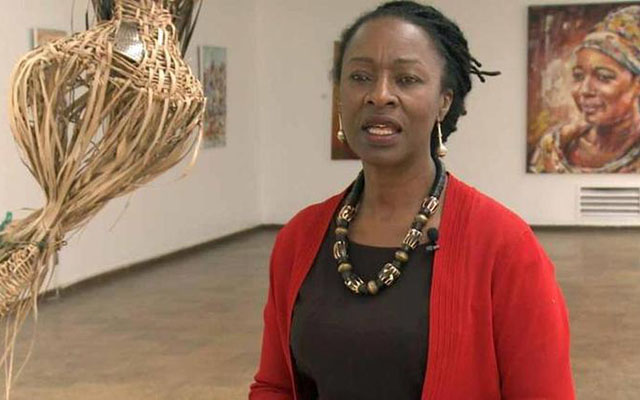Vimbai Chivaura’s last word

Stanely Mushava Literature Today
Vimbai Chivaura is best remembered for his conservative jeremiads on the Zimbabwe Broadcasting Corporation (edited) in programmes such as National Agenda, Zvavanhu, African Pride, Nhaka Yedu and Living Tradition.
He was also an able writer, importing his on-screen clarity, conviction, liveliness and nationalist orthodoxy to newspaper credits and book contributions.
His last word is found in a book entitled, “Africa’s Intangible Heritage and Land: Emerging Perspectives,” the sermon he ran with for decades flanked by fellow apostles Tafataona Mahoso, Claude Mararike, Sheuneni Mpepereki and Ngugi waMirii.
Tapping into the familiar chalice of pan-African piety, Chivaura invokes Okot p’Bitek, Mazisi Kunene, Kwame Nkrumah, Chinua Achebe and others to bring Africans readers to a higher regard for their history.
The selling point of his message, which dispenses with novelty, balance or crossover effects, is the fanatical partiality with which he champions it. If you do not gravitate towards his idea, you will at least feel his energy.
When I first met Chivaura in 2014, he sounded uncomfortable with the backhanded compliments we give to our former colonisers by resisting them in rhetoric while aping their language, dress and lifestyle.
Perhaps the English lecturer was dismantling these invasive culture traps with his unassuming dashiki, the reset to the mother tongue in the programmes he co-presented with elder nationalists, the insistent challenge to Western ideals he represented as a public intellec- tual.
Whatever he made of the occupational ironies, he taught English at UZ for three decades not to be tamed or tanned by the language but to speak back to it in his indigenous accent, to defuse its imperial shells and extend buffer zones for independent Africans from within.
Chivaura’s prefatory contribution to the book is entitled “African History: An Intangible Living Force”. The piece typically starts with a ringing claim as Chivaura falsifies the popular view of history as an account of the past.
He espouses, to the contrary, a view of history as a living force which must animate everyday Africa with identity and purpose. He challenges African historians to weaponise their findings into contemporary reality, short of which their studies “will continue to exist as mere lifeless corpses in their books and journals in the graveyards called libraries”.
“Africa’s Intangible Heritage and Land” was published by UZ Publications last year, drawing from a similarly themed symposium convened by the university in 2015.
Edited by Ruby, Obert Mlambo and Eventhough Ndlovu, the book is a blast of star power with contributions from Tanaka Chidora, Charity Manyeruke, Stephen Chifunyise, David Bishau, Charles Pfukwa, Pedzisai Mashiri and other noted academics.
It is equal parts a study and a sermon as the reader is insistently confronted with the writers’ urgent views of Africanness as well as calls to introspect. Editor Magosvongwe vivifies the urgency with the image of “rufandichimuka” image atop the blurb: “Like mufandichichimuka/idabane, nurtured, our intangible cultural heritage can be resilient despite the harsh challenges. Neglected, it dies. The onus is on everyone to jealously safeguard and cherish it.”
The land, religion, literature, philosophy, language, archaeology, climate change, development, history, myth and other disciplines and concerns are the book’s cross-pollinating “rufandichimukas”, touched up with identity and responsibility.
If you are wary about the abstract and malleable nature of patriotic sermonising, the scholars here will pleasantly surprise you. The shortest distance to bring it all home is the correspondence between African values and the land.
Divinity scholars Nisbert Taisepi Taringa and David Bishau argue that the environmental awareness captured in indigenous belief systems should be appropriated to safeguard the land in their interesting chapter, “Shona Traditional Religions, Dark Green Spirituality: An Indispensable Heritable for Sustainable Land Reforms in Zimbabwe”.
They point out, from their own wartime experiences, that the liberation struggle held natural resources inestimable, both to uphold the dark green spirituality of the Shona past and for tactical advantage.
Traditional leaders and spiritual authorities enforced the preservation of the natural environment, including vegetation and wild animals, as kith and kin, while the “comrades” were at home near the burial sites so they could take cover from the green stretches proceeding from them.
Bishau and Taringa lament that the dark green spirituality which anchored the Second Chimurenga seems to be under threat in the Third Chimurenga, a regressive twist in Zimbabwe’s attachment to its heritage.
For an optimally gainful relationship to the land, the authors point out that there is ecological wealth to be redeemed from the past, while advocating for a middle path between the assumption that that the Shona tradition has all the answers and the assumption that it has none.
Confronted with the downgrade of indigenous culture under the onslaught of individualism and materialism, Chivaura shoots down the idea that man can be free and contends, contrary to Rousseau, that his chains are the ideal way of being, the mark of his responsibility his world.
“Man is not born free. He cannot be free. He is incapable of being free. For only by being in chains and he be and remain human,” Chivaura contends, apprehensive of the self-immolating liberalism engulfing the global North.
Chivaura insists that man’s identity obtains in his place among son, mother, daughter, uncle, father, uncle, husband, wife, mother-in-law, king, priest and many others. He says one way of pressing strong as a people is to defuse the negative energy of polarising demographics like tribe, ethic group and stranger.
He despairs at Africans’ reliance on Western traditions for cultural sustenance and meaning-making. “‘What happened to the children of Sumer?’ the old traveller asked. ‘For all the ancient records say they were an African people. What happened to them,’” Chivaura reacts the sage’s picture of history. “‘Ah,’ the old man sighed, ‘They forgot their history so they died.’ ‘Man know thyself,’ reads a sign at the entrance to the shrine of Delphi in ancient Greece.”
Sheunesu Mandizvidza and Tanaka Chidora bring cynical energy to the otherwise orthodox opus, suggesting that there is something to be redeemed, for the African’s introspective imagination, from a novel marked anathema by Chinua Achebe, Joseph Conrad’s “The Heart of Darkness”.
The duo takes an “Afrospective” trajectory, arguing for a healthy remove between retrieving our values for contemporary good and just fetishising them. Appropriating Conrad’s book for Zimbabwe’s land question, the writers say the book can be read as a warning from a white man on the importance of keeping in force the institutions that govern conduct.









Comments